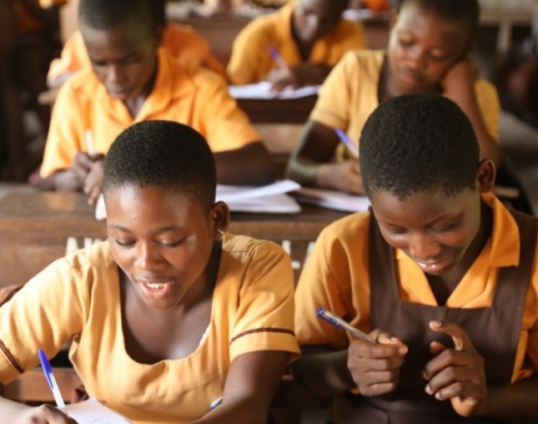
Audio By Carbonatix
UNESCO, UNICEF, WFP and World Bank have issued new guidelines on the safe reopening of schools amidst ongoing closures affecting nearly 1.3 billion students worldwide.
The agencies also warned on Thursday that the widespread closures of educational facilities in response to the Covid-19 pandemic present an unprecedented risk to children’s education and wellbeing, particularly for the most marginalised children who rely on school for their education, health, safety and nutrition.
The guidelines offer practical advice for national and local authorities on how to keep children safe when they return to school.
“Rising inequality, poor health outcomes, violence, child labour and child marriage are just some of the long-term threats for children who miss out on school,” said Henrietta Fore, UNICEF Executive Director.
“We know the longer children stay out of school, the less likely they are to ever return. Unless we prioritise the reopening of schools – when it is safe to do so – we will likely see a devastating reversal in education gains.”
The new guidelines note that while there is not yet enough evidence to measure the impact of school closures on disease transmission rates, the adverse effects of school closures on children’s safety and learning are well documented.
Gains made in increasing access to children’s education in recent decades risk being lost and, in the worse cases, reversed completely.
“In the poorest countries, children often rely on schools for their only meal of the day. But with many schools now closed because of Covid-19, 370 million children are missing out on these nutritious meals which are a lifeline for poor families.
“They are also being denied the health support they normally get through school. This could do lasting damage, so when schools reopen it is critical that these meal programmes and health services are restored, which can also help to draw the most vulnerable children back to school,” said David Beasley, WFP Executive Director.
The best interests of children and overall public health considerations – based on an assessment of the associated benefits and risks to education, public health and socio-economic factors – must be central to national and local authorities’ decisions to reopen schools, the guidelines say.
Schools must look at how they can reopen better – with improved learning and more comprehensive support for children at the school including health, nutrition, psychosocial support and water, sanitation and hygiene facilities.
As countries grapple with when to reopen schools, UNESCO, UNICEF, WFP and World Bank – as part of the Global Education Coalition – urge governments to assess the benefits of classroom-based instruction compared to remote learning, and the risk factors related to reopening of schools, noting the inconclusive evidence around the infection risks related to school attendance.
“While many students are falling behind in their learning journey because of prolonged school closures, the decision of when and how to reopen schools, while far from straightforward, should be a priority. Once there is a green light on the health front, a whole set of measures will need to be in place to ensure that no student is left behind.
“These guidelines provide all-round guidance for governments and partners to facilitate the reopening of schools for students, teachers and families. We share one goal: to protect and advance the right to education for every learner,” said UNESCO Director-General Audrey Azoulay.
Latest Stories
-
The final mic: A nation pauses as Daddy Lumba takes his bow
2 minutes -
Amin Adam rejects ‘blind loyalty’ claims, says Northern support for Bawumia is based on competence
8 minutes -
Ghana Card becomes mandatory for insurance transactions from 2026
11 minutes -
December in GH: Beware of ‘I don’t have Cedis borgas’
12 minutes -
No $300 daily allowance: GAF explains real UN peacekeeping pay
13 minutes -
One dead, another in critical condition after wild bees’ attack
23 minutes -
Michael Okyere Baafi hosts 2025 Christmas ‘Shop for Free’ initiative for elderly in New Juaben South
24 minutes -
Opoku-Agyemang urges long-term investment to grow Africa’s film and creative economy
28 minutes -
Analysing Bank of Ghana’s $10bn forex intervention in 2025
31 minutes -
LA police investigate ‘apparent homicide’ at Rob Reiner’s home
35 minutes -
Health Ministry secures GH¢22.8bn to upgrade facilities and expand workforce
35 minutes -
ECOWAS denounces coup plots, moves to bolster West Africa’s security architecture
37 minutes -
Brown University: ‘We made eye contact’: Ghanaian student describes alleged gunman bursting into lecture hall
43 minutes -
Galamsey and betting fuel rising school dropouts in Northern Ghana – Eduwatch
47 minutes -
Beyond Kontrol 2025 kicks off Christmas with all-star support for Medikal
52 minutes

